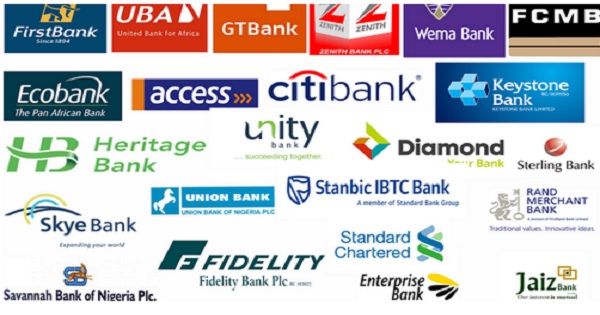E-Financial
Asset Declaration: EFCC Gives Banks’ Chiefs June 30 Final Deadline

Economic and Financial Crimes Commission (EFCC) has given over 120 managing directors and top executives of banks till the end of June to submit their asset declaration forms or face the consequences.

However, National Union of Banks, Insurance and Financial Employees (NUBIFIE) has called on the EFCC to extend the deadline.
Abdulrasheed Bawa, chairman, EFCC, had initially in March given top bankers, among others, till June 1, 2021, to declare their assets in line with the Bank Employees, ETC (Declaration of Assets) Act 1986, with defaulters said to risk 10 years in jail if found guilty by any Federal High Court.
But the anti-graft agency extended the deadline till June 14 to allow bankers to comply with the order effectively.
However, the EFCC chairman had sent a final reminder to all the affected banks executives and given them till the end of June to declare their assets.
According to the Bank Employees, ETC (Declaration of Assets) Act 1986, bankers should declare their assets through the appropriate authority like the Office of the Secretary to the Government of the Federation. But the forms were hardly ever scrutinised, a trend which the EFCC seeks to change.
Section 1 of the Act states, “Every employee of a bank shall, within fourteen days of the commencement of this Act, make a full disclosure of all his assets.
“In the case of a new employee, he shall within 14 days of assuming duty with the bank make a full disclosure of all his assets at the time of his assuming duty; and for the purpose of this subsection, a transfer or secondment from one bank to another shall be treated as a new employment.”
Section 2 of the Act reads, “The full disclosure of assets required under Section 1 of this Act shall be made in the manner prescribed in the Declaration of Assets Form contained in Form A of the Schedule to this Act and shall be executed before and attested to by the Registrar of a High Court, the Court of Appeal or the Supreme Court.
“The President or the appropriate authority may from time to time prescribe such other forms as may be necessary to achieve the purpose and intendment of this Act.”
The Act in Section 5 states that the Chief Executive of every bank “shall twice in every year, but not later than 7 January, or 7 July, as the case may be, submit to the appropriate authority a list of all employees who joined or left the employment of the bank in the immediately preceding six months expiring respectively on 31 December of the previous year and 30 June of that year respectively.”
The Act explained that “Chief Executive” meant the chairman, the managing director or other similar officer of a bank, including the Central Bank of Nigeria.
Likewise, the Act defined “employee” or “employee of a bank” to include the governor (of the CBN), the chairman and members of the board, managing director, director, general manager, manager, examiner, inspector, controller, agent, supervisor, officer, clerk, cashier, messenger, cleaner, driver, and any other category of workers of the Central Bank, a bank or other financial institutions.
However, Anthony Abakpa, president, NUBIFIE, stated that in view of the fact that court activities had yet to commence fully, top bank officials should be given more time to declare their assets.
Abakpa reiterated that an extension would enable the officials to meet the demands effectively.
He said, “As I told you earlier, basically, before someone attains a managerial position in a banking institution, it is mandatory that they must declare their assets at a point of entry.
“So, all of them have declared their assets through the EFCC, NBIC (Nigerian Bank for Commerce and Industry), and DSS (Department of State Services) before they came into the position.
“So I don’t think that it is a new thing. They have not been able to keep up with the deadline because the judiciary was on strike. I think they need more time to do it accurately.”
E-Financial
UBA Expands to More African Cities, Stamps Footprint in Saudi Arabia

United Bank for Africa (UBA) has announced strategic expansion into more African countries even as it plans to open a new office in Saudi Arabia, marking a significant milestone in its mission to connect Africa with key global markets.

Oliver Alawuba, GMD/CEO, UBA group,
This emerged during the Group’s Half Year Business Review held at its global headquarters in Lagos, where Oliver Alawuba, group managing director/CEO, UBA group, met with senior executives overseeing UBA’s 24-country footprint.
The meeting reaffirmed the bank’s pan-African strategy while outlining bold new steps into global markets.
Alawuba highlighted UBA’s continued growth outside Nigeria, with more than 51.7% of Group revenues now generated from its ex-Nigerian operations.
He described the Saudi expansion as a move that positions UBA to support cross-border trade, attract investment flows, and better serve the African diaspora.
“UBA’s vision is clear—we are building a truly global institution anchored in Africa, but serving customers across continents. Our entry into Saudi Arabia signals confidence in new opportunities and commitment to supporting economic connectivity between Africa and the Middle East,” he said.
The Saudi expansion adds to UBA’s international presence, which currently includes the United Kingdom, United States, France, and the United Arab Emirates. Alawuba also disclosed that the bank is upgrading its operating licence in France to further strengthen its European operations.
“In Europe, UBA has operations in the United Kingdom and is upgrading its licence in France, expanding its capacity to serve cross-border trade, investment flows, and the African diaspora, complementing our over 40-year presence in New York,” Alawuba noted.
Since launching its pan-African journey with an entry into Ghana in 2004, UBA has expanded rapidly across 20 African countries, establishing itself as a leading driver of financial inclusion, innovation, and regional integration.
E-Financial
Ecobank Plans to Raise $250m Capital Through Private Placement

Ecobank Transnational Incorporated announced its plan to raise up to $250m in Additional Tier 1 capital through a private placement of contingent convertible notes.

In a statement filed on the Nigerian Exchange Limited recently, the capital raise was approved by shareholders at the company’s Extraordinary General Meeting held in Lomé, Togo. The private placement offer was launched on July 9 and will run for ten days.
“Following the approval of the shareholders at its Extraordinary General Meeting held on May 28, 2025, in Lomé, Togo, to raise up to $250m in additional Tier 1 capital qualifying instruments via a private placement of contingent convertible notes, Ecobank Transnational Incorporated announces the launch of the AT1 effective July 9, 2025, for ten days. Renaissance Capital Africa has been appointed as the transaction adviser to ETI.”
The move is an initiative aimed at strengthening Ecobank’s capital adequacy, enhancing financial resilience, and supporting its long-term growth ambitions across its diversified pan-African banking platform.
Additionally, Madibinet Cisse, Ecobank’s Company Secretary, said, “This proposed capital raise represents a critical step in our efforts to fortify the bank’s financial foundation and support sustainable growth across Africa.”
It would be recalled that Ecobank Transnational Incorporated, the parent company of the Ecobank Group, has raised an additional $125m through a Eurobond tap, bringing the total size of its 2029 notes to $525m.
E-Financial
EFCC Recovers Funds Lost to CBEX Fraud

Ola Olukoyede, chairman, Economic and Financial Crimes Commission (EFCC), has announced that the body has recovered lost funds from the CBEX fraud scheme.

Olukoyede did not announce the amount recovered, but he assured Nigerians that the EFCC is taking action against the promoters of the scheme.
The EFCC Chairman emphasised that the suspects found are facing prosecution.
“We have found a lot of people culpable. Those who promoted that scheme are within our jurisdiction and have been arrested. So, at this moment, they are being prosecuted. And we can also say that money has been recovered, even though the process is still ongoing for us to finally forfeit it,” he said.
Olukoyede also urged Nigerians to exercise caution when investing their resources into online platforms.
“Ponzi schemes remain one of the most pervasive threats facing unsuspecting investors. The CBEX case is a clear example. We all remember the outcry that followed the collapse of the scheme, but these unfortunate situations are preventable. Nigerians must begin to conduct due diligence before committing their resources to such platforms,” Olukoyede said.
He also stressed that the body remains committed to fishing out the culprits and recovering the lost funds.
“It was only when the bubble burst that people wanted EFCC to perform magic and recover their money. In the case we investigated in Lagos, which we dubbed Operation Flush, we arrested a large number of foreigners involved in various cybercrimes, including CBEX. I want Nigerians to know that as of today, we have secured close to 150 convictions. Some of them are already serving their jail terms. And when they are through with that, we are going to send them back to where they came from. So we are monitoring them,” he added.
He urged the public to stay vigilant, assuring them that the body will see the case to the end.
“We are no longer the EFCC that drops cases halfway. Whatever we start, we will finish. Nigerians should trust us and believe in our capacity to do justice. Some of these cases are complex and may require cross-border investigations, but we are up to the task,” he said.

 News3 days ago
News3 days agoJAMB Accuses Student of Securing Admission through Identity Fraud

 News3 days ago
News3 days agoCheck Point Report Finds Africa as Top Target for Cyber-attacks

 E-Financial3 days ago
E-Financial3 days agoEFCC Recovers Funds Lost to CBEX Fraud

 Telecom2 days ago
Telecom2 days agoNCC Speaks of Plans to Secure Telecom Infrastructure Nationwide

 General News2 days ago
General News2 days agoAirtel Nigeria Drives BFSI and Utility Sector Innovation with Industry-wide Workshop

 Telecom2 days ago
Telecom2 days agoAfrica’s Lawmakers Commit to Strengthening AI, Digital Health and Smart Manufacturing Frameworks

 E-Financial2 days ago
E-Financial2 days agoUBA Expands to More African Cities, Stamps Footprint in Saudi Arabia

 E-Financial3 days ago
E-Financial3 days agoFinancial Fraud in Nigeria Surges by 45 Percent, 70 Percent of Losses Linked to Digital Platforms – CBN

















